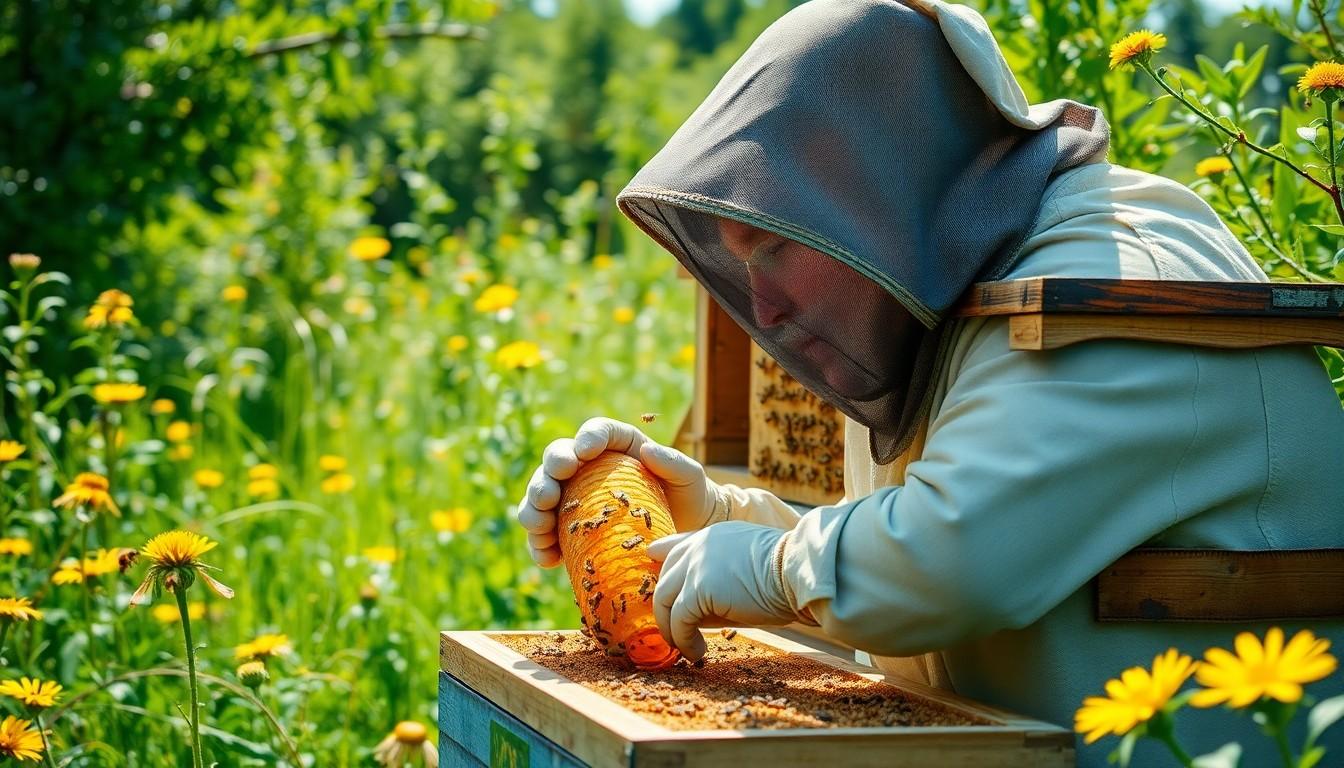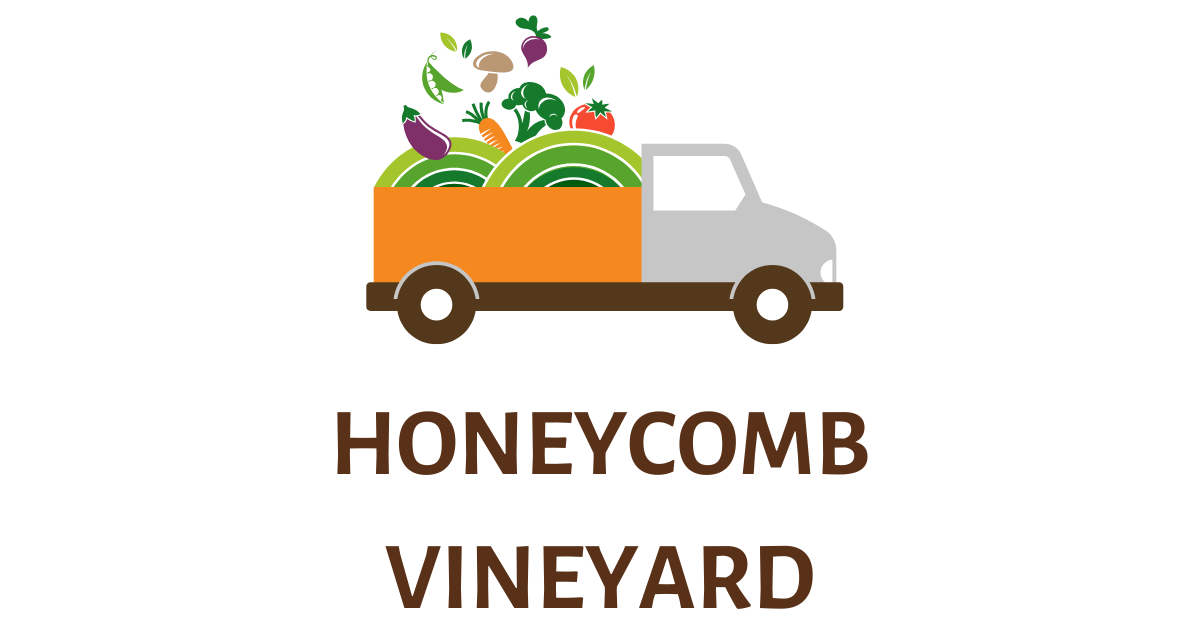The Best Fluffy Pancakes recipe you will fall in love with. Full of tips and tricks to help you make the best pancakes.

What Does Beekeeping Age Mean? Discover Expert Insights for Better Hive Management
Beekeeping isn’t just about honey and buzzing bees; it’s a world where age matters—specifically, beekeeping age. Ever wondered why some beekeepers seem to have a sixth sense about their hives? It’s not magic; it’s experience. Beekeeping age refers to the duration a beekeeper has been tending to their buzzing buddies and how this experience shapes their skills and knowledge.
What Does Beekeeping Age Mean
Beekeeping age refers to how long a beekeeper has actively cared for and managed hives. Experience directly impacts the skills a beekeeper develops over time. Newer beekeepers might face challenges that experienced ones can navigate with ease. The depth of understanding gained from managing numerous hives leads to improved hive management techniques.
Years spent in beekeeping foster intuition about bee behavior and colony health. Observational skills enhanced through time contribute to more effective problem-solving. Veteran beekeepers often recognize signs of stress or disease earlier, allowing for timely intervention. Strategies for pest control or hive maintenance evolve with experience, often leading to higher honey yields.
Individuals with significant beekeeping age tend to share their expertise with newcomers. Mentoring relationships often form, creating a supportive community for aspiring beekeepers. Workshops and local beekeeping associations provide platforms for sharing knowledge and best practices.
Beekeeping age also influences equipment choices and innovations. Experienced beekeepers may gravitate towards advanced tools and techniques, refining their workflows. Participating in local events helps build networks that facilitate information exchange.
Enhanced understanding of environmental factors plays a critical role in beekeeping success. Longtime beekeepers are more attuned to seasonal changes and their impact on hive health. This awareness allows them to employ strategies that promote hive resilience and productivity.
By assessing a beekeeper’s age in the field, one gains insight into their approach and knowledge. Five years of experience often signifies a firm foundation, while ten years indicates a seasoned expert. Advanced beekeeping practices often emerge from this cumulative experience, leading to thriving hives and successful harvests.
Factors Influencing Beekeeping Age

Several factors impact beekeeping age and its significance. Each contributes to a beekeeper’s development and effectiveness in managing hives.
Experience Level of Beekeepers
Experience level greatly influences beekeeping age. Newer beekeepers often rely on guidance, while those with extensive experience demonstrate refined skills. Intuition develops over years of hands-on management, enabling seasoned beekeepers to quickly assess hive health. Knowledge enhances their ability to handle various challenges, such as pests and diseases. The insights gained over time lead to better decision-making, driving improved hive productivity. Additionally, experienced beekeepers frequently pass on their knowledge through local associations and workshops, enriching the community.
Hive Production Cycles
Hive production cycles also shape beekeeping age. Understanding seasonal changes allows beekeepers to optimize colony management. Experienced beekeepers align their practices with natural rhythms, promoting healthy hive growth. Knowledge of when to initiate splits or manage supers stems from years of observation. Success in harvesting honey hinges on being attuned to these cycles. Those familiar with local climate patterns adapt more effectively, leading to higher yields. Seasonal awareness becomes a valuable asset that enhances overall hive management practices for seasoned beekeepers.
Importance of Beekeeping Age
Beekeeping age significantly impacts several aspects of hive management. Understanding its influence helps assess a beekeeper’s effectiveness in producing quality honey and maintaining colony health.
Impact on Honey Quality
Experience correlates with honey quality. Seasoned beekeepers identify the best flowering periods, optimizing nectar collection. Enhanced observational skills allow them to monitor hive behavior, leading to timely interventions. As beekeeping age increases, knowledge of bee foraging patterns deepens. This understanding contributes to producing high-quality, flavorful honey with unique characteristics. Moreover, established beekeepers often employ more effective harvest techniques, minimizing disturbance to the bees while maximizing yield, resulting in pure, natural products appreciated by consumers.
Effects on Colony Health
Colony health hinges on a beekeeper’s experience. Experienced beekeepers recognize signs of stress, pests, or disease swiftly, allowing for early intervention. Their familiarity with hive dynamics leads to better decision-making during challenging situations. With a clear understanding of environmental factors, they manage colonies more effectively throughout the seasons. Long-term knowledge translates into optimal feeding and resource management practices, promoting stronger, healthier hives. Newer beekeepers often lack this instinctive grasp, making guidance from experienced beekeepers essential for fostering robust colonies that thrive.
How to Determine Beekeeping Age
Determining beekeeping age involves assessing various factors that reflect a beekeeper’s experience and skills. Two key aspects are observing hive conditions and evaluating bee behavior.
Observing Hive Conditions
Recognizing the overall health of the hive provides insights into a beekeeper’s experience. Seasoned beekeepers regularly check for signs of disease, pests, and overall colony strength. Understanding proper hive maintenance techniques, such as cleanliness and ventilation, helps maintain bee wellbeing. Experienced individuals also analyze honey production and frame management, which are critical for sustaining colony health. Observing the structure and cleanliness of frames can indicate how well a beekeeper manages their hives. Regular inspections enable recognition of subtle changes, fostering quicker responses to potential issues.
Evaluating Bee Behavior
Evaluating bee behavior reveals deeper insights into a beekeeper’s understanding of their colonies. Experienced beekeepers can interpret various activities, from foraging patterns to the presence of swarming behaviors. Recognizing stress signals or signs of aggression in bees allows for immediate intervention. Active monitoring facilitates early detection of diseases or disruptions within the hive. Observing the time of day bees are active provides a clearer picture of their foraging efficiency. Additionally, frequent direct interactions with bees improve a beekeeper’s adaptability to specific colony needs, showcasing the benefits of practical experience in hive management.
Shaping a Beekeeper’s Skills
Beekeeping age plays a vital role in shaping a beekeeper’s skills and overall success. As they accumulate experience, they develop a keen intuition and refined techniques that enhance hive management. This depth of knowledge not only improves honey yields but also fosters healthier colonies.
The journey of beekeeping is one of continuous learning. Newer beekeepers benefit greatly from the mentorship of seasoned individuals who share their insights and practices. Ultimately, understanding the significance of beekeeping age can guide both new and experienced beekeepers toward more productive and sustainable practices in their apiaries. Embracing this knowledge leads to thriving hives and exceptional honey quality.
